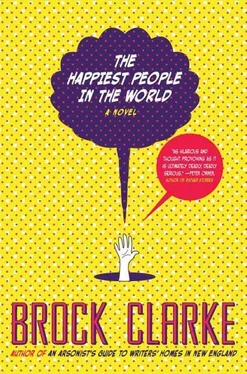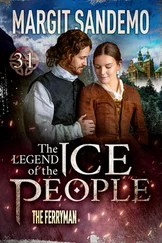“Call Denmark on my office phone,” Matty said.
“Denmark,” Ellen repeated, arms uncrossed now, but still frowning. She sat in the chair. “Why’d you do that?”
“I didn’t.”
“Huh.” Ellen said. “Then who did?”
“That’s what I’d like to know,” Matty said. He leaned back in his chair, being quiet, trying to let Ellen come to her own conclusion, which Matty wanted to be identical to his own conclusion. This, of course, was also known as the Socratic method. At Cornell, Matty had been taught that the Socratic method was intellectually bankrupt. Which is not to say that it wasn’t effective.
“It has to be Jens Baedrup,” Ellen said. “The Danish stranger who came to Henry’s office.”
Matty nodded. “That was my first thought, too. And I guess it could be him.” He paused to think, or pretend to. “But the school was locked. He’d have to have gotten a key from someone.”
“Who has keys?”
“Everyone who works here has keys to the front doors,” Matty said. Then, again, he stopped talking, long enough to allow Ellen to think, Well, then, it could have been lots of people, and then to counterthink, But who among those lots of people would want to call Denmark?
“Why would he have used your phone?” Ellen said, and Matty did not miss the pronoun. He, Matty thought but did not say. Because Matty wanted to appear in all ways principalic: fair minded, objective, an indisputably good guy.
“Maybe because there are only two outside lines in the whole school: mine and Gina’s. And Gina locks her office door at night.”
“You don’t lock yours?”
“Nope,” Matty said, and he shrugged, as though to say, I know, stupid, huh, but hey, my office door is always unlocked, that’s the kind of good guy I am and always have been. And anyway, everything Matty had said so far was absolutely true, were Ellen inclined to check. She didn’t seem inclined. Ellen pulled her blond hair off her forehead, held it, then let it fall back. Her hair, her hair. Matty had always found it incredibly soft, less like hair and more like white-blond feathers, with slightly darker blond roots.
“What time?” Ellen said.
“What time,” Matty repeated, trying to buy himself some. Gina had said, “A little after eleven.” Henry had probably been with Ellen then, in the bar, or upstairs, waiting for her to close the bar. Henry couldn’t have made the phone call then. A few hours before that, Henry was in the bar, telling everyone the stranger’s name. A few hours before that everyone had been wondering about the stranger, and Ellen had been wondering about Henry. “I wonder where Henry is,” Matty had heard Ellen wonder several times in the three hours between when Henry had left the baseball game and when he’d shown up at the bar. As for Matty himself, he’d gotten to the bar a little before five o’clock.
“A little after five o’clock,” Matty said. It was the only lie he’d told over the past couple of minutes, and in the end he would have cause to regret it. Also, by this point, Matty had stopped wondering who had actually made the phone call, and had dedicated himself to suggesting that most likely it was Henry. He would later have cause to regret that, too. “Five seventeen, to be exact,” he said.
“Huh.” Ellen again. She was biting her lip, eyes pinched, remembering who had been where and when yesterday, doing the math. Matty let her do it. Then, when she’d done it for long enough, he reminded her, “Hey, tomorrow’s Kurt’s band concert.”
“Right,” she said, and even as distracted as she was, she made a face. Kurt played trumpet in the school band’s annual October concert, which was always a somewhat painful experience. The band director, Mr. Ferraro, had never quite gotten over the rock music of his youth, the greatness of which he was convinced was a product of the era’s spontaneity, which led him to forsake regular rehearsals, and which also led him to have the kids perform wildly inappropriate material. Last year, for instance, their finale was the Rolling Stones’ “Let’s Spend the Night Together,” and when some parents complained, Mr. Ferraro pointed out that the kids did not actually sing the lyrics (which was true, although Mr. Ferraro did mouth the words during the enthusiastic prosecution of his conducting) and that, besides, the kids’ version was “much more brass than ass,” which did not necessarily help Mr. Ferraro’s cause with the parents but was nonetheless also true.
Anyway, the concert was to begin at 2:55 tomorrow. Matty and Ellen always went to Kurt’s public events — in addition to band, he was on the track team — together. It was important to Kurt, Ellen said. Of course, Kurt had never said so himself. Nevertheless, it was a good thing, Ellen said. Matty supposed that was right. He also supposed it was a good thing that Henry sat apart from them during these performances. “ We’re Kurt’s parents,” Ellen had said before last year’s concert. “It’s important that Kurt sees us together. Henry would probably just be a distraction.”
“That’s true!” Matty had said, maybe a little too enthusiastically, because Ellen had raised an eyebrow and said, “Yeah, it was Henry’s idea.”
“Henry!” Ellen was saying now. Because there he was, standing in the doorway, looking at Ellen, a huge, toothy, very un-Henry-like smile on his face. Love, love, Matty thought, it made you into something you were not. Wow, I hate you, Matty thought but did not say to Henry. But then he noticed that Ellen wasn’t exactly smiling at Henry the way he was smiling at her. “Where. .,” she started to ask. Then she glanced at Matty and said, “Where were you?”
Then Henry began looking more like Henry. He frowned. Crossed his arms. Ellen turned to Matty to explain. “We’re supposed to go to Walmart to buy wedding stuff, and then back to the Lodge to decorate.” Then she turned back to Henry. “You were supposed to meet me at three thirty!” she said. Henry glanced at his watch, and Matty at his. It was only 3:32. When he looked up again, Henry and Ellen were walking out of his office. Without even saying good-bye. Although Matty wasn’t thinking too much about that. He was instead thinking about Ellen. “Where were you?” Ellen had asked Henry. But Matty knew what she’d wanted to ask. She’d wanted to ask, Where were you at five seventeen last night?” When, Matty wondered, would she ask that question? And how would Henry answer when she did?
How many times had Ellen been about to ask the question? Once, when they’d stood in the PARTY aisle at Walmart, trying to decide how much yardage of streamers they would need and in what colors; twice, at Comstock’s Food and Beverage Wholesale Distributors, listening to Bill Comstock Sr. congratulate himself on what a great deal he was giving them on kegs of Michelob because, hey, she was a longtime, valued customer, and hey, she was getting married, but hey, don’t expect the same great deal if she got married again, that is, if they even made Michelob at that future date and time, because as it was, pretty much no one drank it anymore, even though it used to be one of their biggest sellers, but anyway, you’re welcome; thrice, at the gas station, looking back out the passenger’s side-view mirror as Henry filled up the tank in her truck with regular unleaded. Now, for the fourth time — was there another way to say “the fourth time”?—at the Lumber Lodge. It was six o’clock; the place was pretty much empty, except for two old guys whom Ellen remembered from back when she was a girl and her mother ran the bar and who always only drank their beer out of juice glasses, and Ellen herself, and Henry, who was sitting at the bar, addressing a basket of chicken wings. Until very recently, Henry had watched in disbelief as the drunks at the Lumber Lodge ate those grotesque bird parts by the dozens. How can you eat that stuff? his pinched face had always seemed to want to know. But now apparently he knew; now he couldn’t stop eating the things. Although he also couldn’t seem to quite make himself believe that they really were chicken wings.
Читать дальше












